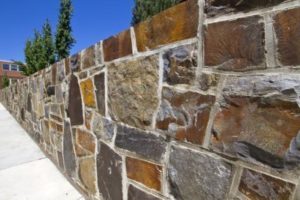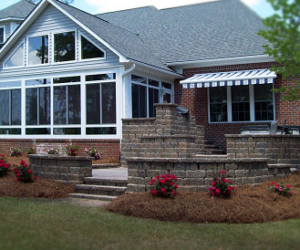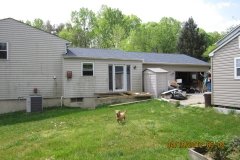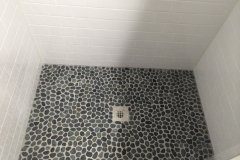Maryland’s diverse climate challenges homeowners with managing heavy rainfall during the rainy season, making proactive foundation repair and moisture control essential. At Allmaster Home Services, we understand the importance of maintaining a solid foundation to prevent long-term damage caused by moisture. In this guide, we offer valuable foundation repair and maintenance tips to help you preserve the integrity of your residence throughout the year.
The Need for Foundation Repair for Moisture Control
Moisture is one of the biggest threats to your home’s foundation. Persistent wet conditions can lead to significant structural issues, including cracks, bowing walls, and even complete foundation failure. In Maryland, where rain can accumulate quickly, it’s crucial to have a strategy in place for foundation repair for moisture control to protect your property.
Here are some strategies for maintaining a solid foundation for your Maryland home:
- Regular inspections: Schedule annual inspections with professionals like Allmaster Home Services to identify potential problems before they escalate. Catching signs early, such as minor cracks or water pooling, can save you extensive repairs.
- Proper drainage: Ensuring that your home has adequate drainage is pivotal. This involves maintaining gutters and downspouts, directing water away from your foundation, and possibly installing drainage solutions like French drains or sump pumps.
- Waterproofing measures: Consider waterproofing your basement and foundation. This can involve applying sealants to your foundation walls and floors and installing waterproof membranes.
Homeowner Tips for Preventing Foundation Damage
Educating yourself on the signs of foundation issues is critical to proactive maintenance. Here are some signs to watch for:
- Cracks in walls, especially over doors and windows
- Doors or windows that stick or won’t close properly
- Uneven floors
- Visible gaps between wall seams or between walls and ceilings
Acting at the first sign of trouble can prevent more severe issues that are costly and complex.
Foundation Repair and Maintenance Tips
Implementing a routine maintenance plan is essential for preventing foundation problems in homes. Some practical steps include:
- Soil management: Keep the soil around your home consistently moist. Water the foundation during dry spells to prevent soil contraction and expansion, which can cause movement and damage.
- Landscaping considerations: Plan your landscaping so trees and large shrubs are planted safely from your home to prevent root systems from affecting the foundation.
- Monitor indoor humidity: Use dehumidifiers if necessary to maintain optimal indoor humidity levels and prevent condensation build-up, which can lead to dampness and mold growth.
Long-Term Benefits of Maintaining a Solid Foundation for Your Home
Investing in your foundation’s health is investing in your home’s future. A solid foundation ensures:
- Increased property value: Homes with well-maintained foundations are more attractive to buyers and can command higher market values.
- Enhanced safety and comfort: A stable foundation contributes to your home’s overall safety and comfort, preventing issues like mold and mildew, which can impact health.
- Cost savings: Preventative measures and timely repairs avoid the high costs of significant foundation restorations.
Maintain A Solid Foundation With Allmaster
At Allmaster Home Services, we are dedicated to helping Maryland homeowners like you navigate the challenges of moisture management with expert foundation repair services. Whether you need an assessment, repair, or preventive solution, our team ensures your home remains dry, safe, and structurally sound, regardless of weather.
Contact us today for more information on how we can help you secure your home’s foundation against Maryland’s unpredictable rainy season.

 When considering whether to upgrade your yard with a retaining wall, you might wonder if it can add value to your home. The answer to this may seem obvious once you know what a retaining wall can do for your property!
When considering whether to upgrade your yard with a retaining wall, you might wonder if it can add value to your home. The answer to this may seem obvious once you know what a retaining wall can do for your property! A paver patio is an attractive and popular outdoor living space among homeowners across the region. Patio pavers come in a wide range of shapes, sizes, colors, and configurations, allowing for countless customization options in creating an ideal outdoor living space. However, as with any other part of your property, proper care and maintenance are essential for keeping up the appearance of your patio pavers. Whether you’re thinking about investing in patio pavers or have recently had a paver patio installed, here’s what you need to know about how to prep, clean, and seal your patio pavers so that they’ll look and function at their best for years to come.
A paver patio is an attractive and popular outdoor living space among homeowners across the region. Patio pavers come in a wide range of shapes, sizes, colors, and configurations, allowing for countless customization options in creating an ideal outdoor living space. However, as with any other part of your property, proper care and maintenance are essential for keeping up the appearance of your patio pavers. Whether you’re thinking about investing in patio pavers or have recently had a paver patio installed, here’s what you need to know about how to prep, clean, and seal your patio pavers so that they’ll look and function at their best for years to come. Retaining walls are a common sight on properties that have slopes, hills, or other inclines. These unique walls serve many purposes—both aesthetic and functional— and can be a great option for your property as well. But what exactly is a retaining wall and what are the benefits of having one installed? Here’s everything you need to know about retaining walls.
Retaining walls are a common sight on properties that have slopes, hills, or other inclines. These unique walls serve many purposes—both aesthetic and functional— and can be a great option for your property as well. But what exactly is a retaining wall and what are the benefits of having one installed? Here’s everything you need to know about retaining walls.






